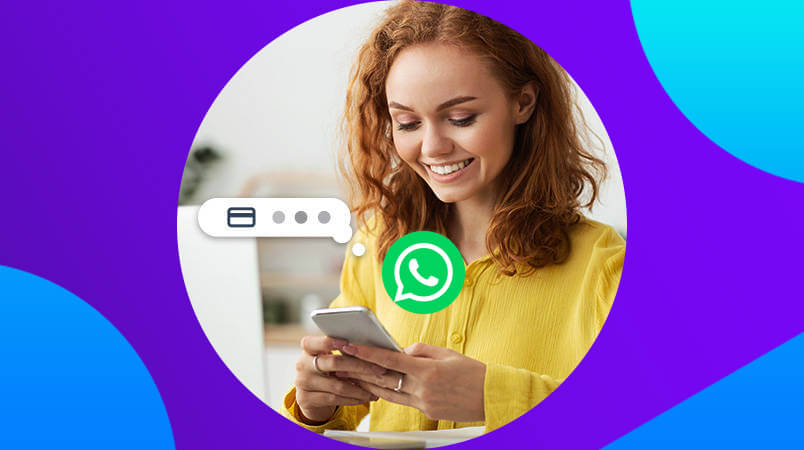Transactional Marketing Defined
Transactional marketing attempts to increase overall sales in a specified time. This marketing approach prioritizes your brand’s short-term relationship with a potential customer to close the deal no matter what. The relationship ends once the customer completes their purchase, minus any future customer service inquiries.
Your brand can use transactional marketing to attract new customers and optimize your sales potential by focusing on quick sales. In addition, because transactional marketing campaigns do not always target specific customers, your brand can send out multiple promotional messages to a broad audience at a very low cost.
As a result, you can drive increased sales and conversions, maximizing repeat sales and subsequent customer loyalty.
Because transactional marketing strives to convert as many leads into paying customers as possible, loyalty is a lower priority. Instead, a common transactional marketing tactic is upselling, in which you recommend the latest version of a product. Other examples of transactional marketing include:
Offering rewards to encourage each purchase
Advertising a buy-one-get-one promotion
Providing seasonal sales discounts
Pro Tip: Use transactional marketing to clear out overstocked or seasonal inventory to make room for more in-demand products.
Relationship Marketing Defined
As the name suggests, relationship marketing is a business strategy that emphasizes building a relationship with your customers. Unlike transactional marketing, which focuses on making the sale, relationship marketing looks beyond the point of purchase.
By building long-term, meaningful connections with customers, your business can drive engagement, satisfaction, and loyalty.
Nurturing long-term customer relationships can also help your brand retain customers, generating more revenue than acquiring new ones. In fact, it costs up to seven times more to acquire a new customer than to keep an existing one. Therefore, using relationship marketing tactics to boost customer retention can help reduce marketing costs and increase ROI.
Today, consumers expect a personalized touch: Over 90% said they were more likely to shop with brands that provide relevant offers and recommendations. Establishing a long-term relationship with your customers helps your brand understand their needs and provide an exceptional customer experience.
For example, you can share personalized product recommendations with your customers based on their purchase history. Other examples of relationship marketing include:
Offering specials and discounts to thank your loyal customers
Interacting with customers on social media by regularly responding to comments and other posts
Collecting feedback from customers to demonstrate that you value their opinions
Launching a customer loyalty program
Pro Tip: Use relationship marketing if your company benefits from customer loyalty to sell items like electronics, appliances, software, and cars.
Transactional vs. Relationship Marketing: A Comparison
Both techniques offer value to a growing business when it comes to transactional vs. relationship marketing. However, the key is to implement each approach to meet your brand’s specific goals. Here are four main differences between transactional and relationship marketing:
Transactional Marketing
Customer acquisition
Short-term benefits
Less customer interaction
Mass marketing
Relationship Marketing
Customer retention
Long-term benefits
More frequent customer interaction
Personalized marketing
Customer Acquisition vs. Retention
Because transactional marketing focuses on increasing one-off sales, acquiring new customers is a reliable way to achieve that goal. On the other hand, relationship marketing prioritizes customer retention to build long-term relationships and develop customer loyalty.
Short-Term vs. Long-Term Benefits
Transactional marketing emphasizes the short-term benefits of its strategy, like increased sales and greater profitability. In comparison, relationship marketing builds on the long-term benefits of nurturing customer relationships to directly or indirectly grow your business.
Less vs. More Frequent Customer Interaction
With transactional marketing, customer interaction is less frequent after a purchase has been completed. However, customer interaction is more frequent in relationship marketing as brands seek long-lasting ties by providing valuable information and sharing recommendations.
Mass Marketing vs. Personalized Marketing
A transactional marketing approach leverages mass marketing to make as many sales as possible. In contrast, relationship marketing focuses on a more personalized approach to building customer relationships that lead to more sales long term.
Build Effortless Customer Experiences with Conversational Commerce
When it comes to comparing the benefits of transactional vs. relationship marketing, both strategies offer much value to your business. Ultimately, both approaches will help your brand gain more customers and develop a loyal customer base to support sustainable long-term growth.
At CM.com, we believe that relationship marketing can help retailers stay competitive in a rapidly changing marketplace. Our Mobile Marketing Cloud lets you connect with your customers on their favorite mobile channels, sharing personalized marketing messages that drive sales, engagement, and loyalty.
Our user-friendly platform helps retailers and e-commerce brands get started with conversational commerce, where every conversation can become a conversion.
Contact us today to learn more about how CM.com can transform your customer journey.







